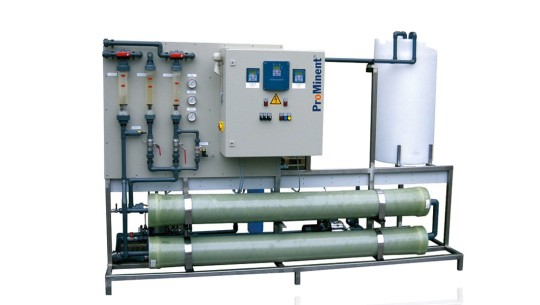
NF (Nanofiltration) in Russia

Nanofiltration (NF) is a pressure-driven membrane filtration process that falls between reverse osmosis (RO) and ultrafiltration (UF) in terms of pore size and separation capability. NF membranes typically have a pore size of about 0.001 microns and are designed to remove divalent and larger monovalent salts, organic molecules, and other contaminants while allowing most monovalent salts (such as sodium chloride) and smaller molecules to pass through.
It is commonly used in water treatment, food & beverage processing, and pharmaceutical industries where selective separation is required. NF operates at lower pressure compared to RO, making it more energy-efficient while still achieving high-quality separation.
|
Pore Size: |
Approximately 0.001 microns (smaller than UF, larger than RO). |
|
Selective Separation: |
Removes divalent & trivalent ions, heavy metals, organic matter, pesticides, and microorganisms, while partially allowing monovalent salts to pass. |
|
Operating Pressure: |
Moderate (typically 4–30 bar), lower than RO. |
|
Water Softening Ability: |
Effective in reducing hardness (calcium, magnesium). |
|
Energy Efficient: |
Requires less pressure and energy compared to reverse osmosis. |
|
Applications: |
Drinking water purification, wastewater treatment, food & dairy industry (e.g., whey concentration), and pharmaceutical processing. |